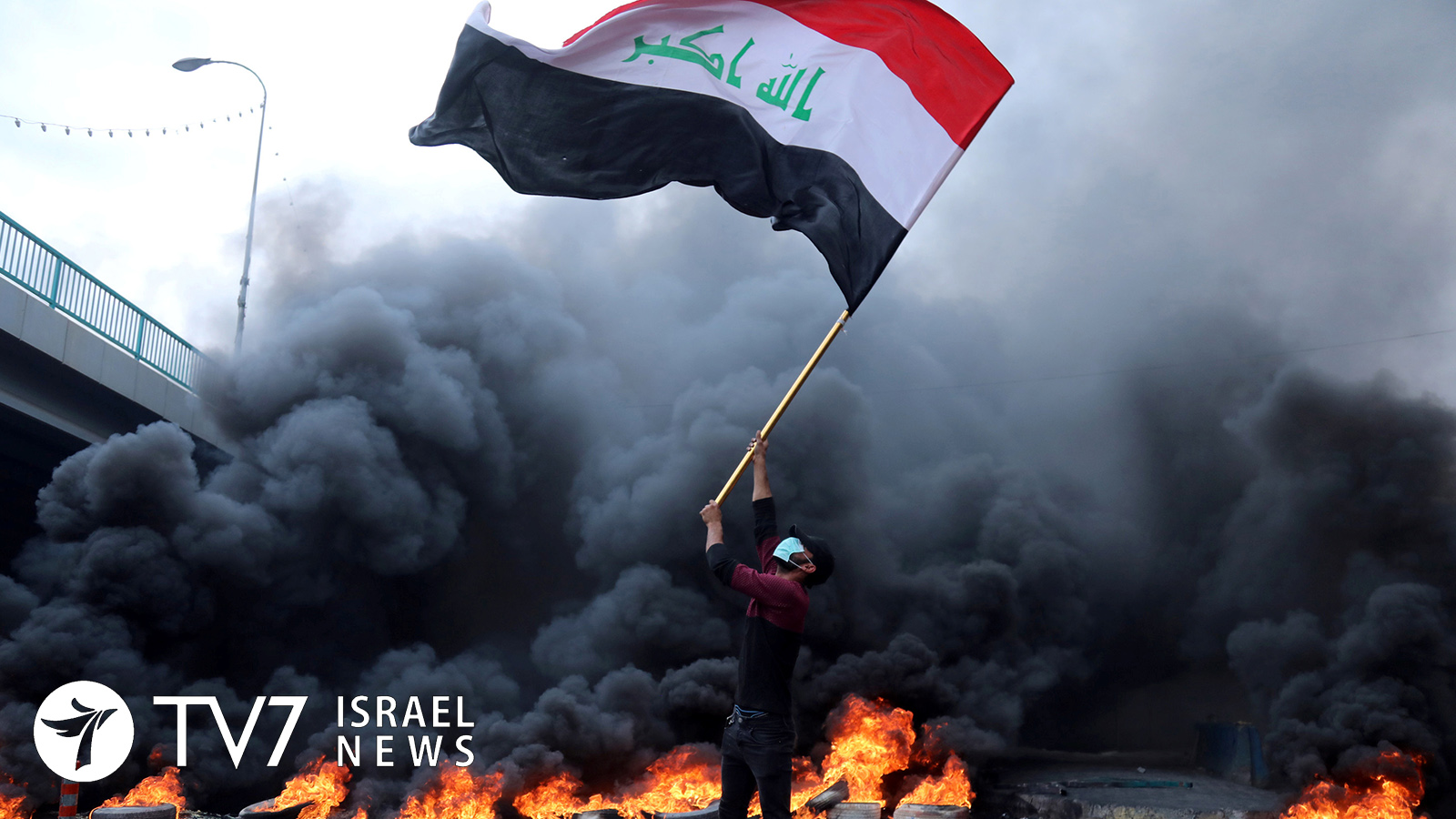Editor’s Note: This article was updated 29 November 2019, 09:30
45 protesters were shot dead and scores more injured by Iraqi security forces on Thursday (November 28), in renewed clashes as part of ongoing mass demonstrations throughout the country.
At least 29 people died when armed troops fired at protesters who had blocked a bridge in the southern city of Nassiriya. Authorities said four people were killed by gunfire in Baghdad when security forces opened fire with live ammunition and rubber bullets to prevent demonstrators from crossing the strategic Ahrar bridge over the Tigris River leading to the fortified Green Zone, where the Iraq’s government is located. Twelve died in Najaf, 180km (nearly 112 mi) south of Baghdad, where demonstrators burned tires and blocked roads in open defiance of a curfew imposed by authorities – just one day after having stormed and set fire to an Iranian consulate on Wednesday (November 27).
The torching of the Iranian diplomatic compound marked what many analysts believe could be a defining moment in the uprising against the Iranian-backed authorities in Iraq. At least 350 people have died since October 1, when Iraqis have taken to the streets by the thousands to demand the ousting of their government and political class. Young, mostly Shi’ite protesters say politicians are corrupt and beholden to foreign powers – in particular, the Islamic Republic of Iran. They have also accused their leaders for a failure to recover from years of conflict, despite relative calm since the defeat of the Islamic State in 2017.
One unnamed Iraqi was cited by Reuters as saying, “Everything is terrible. People are here today to demand their rights because their rights have been stolen from them. For the past 16 years, the people have been played, we’ve been living in destruction and wars, the youths, and all of the generations have been destroyed.”
An unidentified protester said ”Young men burned it (the consulate). When it was set on fire, all the riot police in Najaf and the security forces started firing on us, as if we were burning Iraq as a whole. The riot police fired tear gas canisters intensively and the security forces showered us heavily with live bullets.”
”We are taking to the streets in peaceful demonstrations,” stressed another man in the central-south Iraqi town 160 km (100 mi) south of the capital, adding “we have been protesting for 30 days, but the government has not responded, as if we were not human beings.”
Promises of electoral and anti-corruption reform by Iraqi Prime Minister Adel Abdul Mahdi have yet to be initiated; nor has he followed through on an offer to step down from power. The protests are the most complex challenge facing the Shi’ite-dominated ruling class that has controlled state institutions and patronage networks since the 2003 U.S.-led invasion that toppled long-time Sunni ruler Saddam Hussein.
Iranian Foreign Ministry Spokesman Abbas Mousavi issued a statement voicing “hatred” for the Iraqi rioters who destroyed Tehran’s consulate, and demanded that Baghdad deal with the “perpetrators of the attack responsibly, firmly and effectively.”
